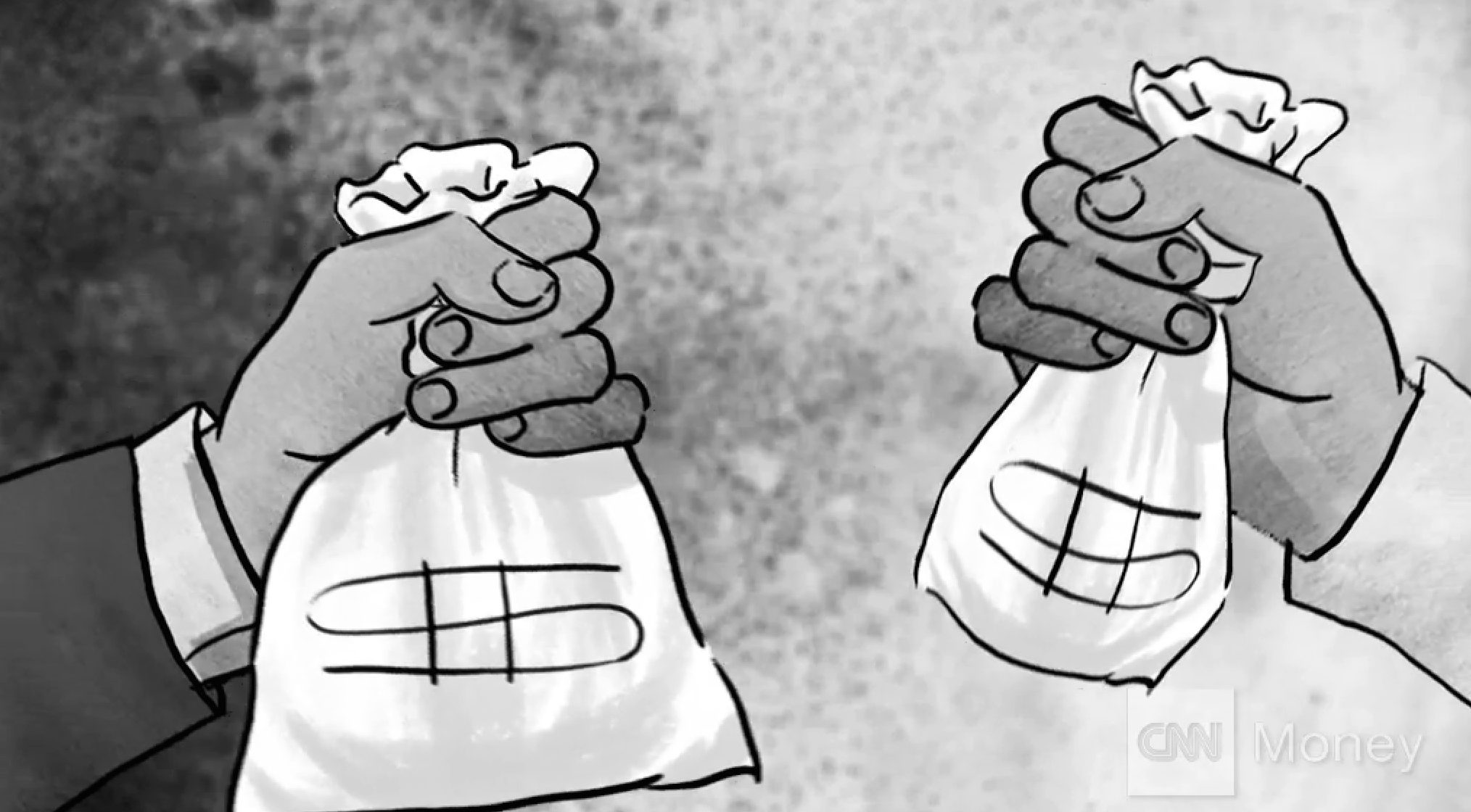Some Debt Collectors Get Away With Shady Behavior When Collecting Debt For Government Image courtesy of From CNNMoney's "Above The Law," an extensive investigative report on debt collection on behalf of the government.

From CNNMoney’s “Above The Law,” an extensive investigative report on debt collection on behalf of the government.
Federal and state regulators are continually trying to crack down on debt collectors who use unsavory, illegal tactics to make consumers pay up. But some ethically questionable collectors are operating under the regulatory radar because they collect debts for the government.
According to “Above The Law,” an in-depth investigative piece from CNNMoney, government agencies — federal, state and local – have long hired private debt collectors to go after millions of Americans with unpaid taxes, tickets, bills and other debts.
One of the country’s largest and most connected private debt collectors is Texas-based law firm Linebarger Goggan Blair & Sampson, which holds contracts for 2,300 clients in 21 states.
Among present and past clients on the firm’s roster are small-town school districts, the city of New York, the city of New Orleans, county toll road authorities, and the Internal Revenue Service.
But CNN claims that Linebarger sometimes do things that other private collectors aren’t allowed to, like charging exceptionally high fees and employing threats against debtors.
Such powers makes it relatively simply for collectors like Linebarger to transform small debts like an unpaid road toll from just a few dollars to a few hundred dollars, like the Texas driver whose unpaid $7.50 toll ballooned into a collections bill for $157.50.
The company tells CNN, that by charging the fees the company doesn’t have to charge the majority of the state and local governments it contracts with, keeping taxpayers from subsidizing its collection costs.
The law firm maintains that its fees are reasonable and fluctuate depending on the kid of debt owed and how hard it is to collect.
Some states grant exemptions or pass laws to allow debt collectors to skirt federal regulations when pursuing government debts. For example, legislators in Florida and Texas voted to let collectors charge fees of up to 40% and 30% of the total bill, respectively.
In addition to charging high fees, Linebarger also allegedly employs a number of shady debt collector trademarks like threatening consumers with letters and phone calls.
Officials with Linebarger say that whenever possible they try to negotiate payment plans or reduce the debt for consumers.
However, an Oklahoma tax attorney tells CNN that of the dozens of people he’s represented battling the firm he’s only been able to negotiate taxes owed, never the firm’s fees.
In addition to facing issues from consumers through the BBB, the firm has been party to a number of lawsuits. A class-action suit in New Orleans challenged the company’s fees charged under a contract with the city. CNN reports the Louisiana Supreme Court ruled that the firm’s 30% fees were unconstitutional.
Still, the company continues to charge high fees to the detriment of consumers across the country.
For its part, Linebarger says the company generally gives multiple opportunities for consumers to pay before escalating the debt.
“While we understand that this is frustrating to some debtors, they can avoid all fees by doing what the vast majority of Americans do – pay their tolls when they’re due instead of allowing them to go delinquent,” the firm’s chief marketing officer tells CNN.
While it would appear from consumers’ stories that Linebarger has violated several aspects of the Fair Debt Collection Act, the company has faced few consequences.
That’s because the protections rarely apply to the government debts the firm collects, since they aren’t considered consumer debts like credit card or water bills.
“All of these [consumer] protections seem to go out the window,” Alex Kornya, assistant litigation director at Iowa Legal Aid, tells CNN.
So how can consumers be protected from companies like Linebarger or other government contracted private collectors? Advocates say the only way is to simply end the special treatment afford to government collectors.
For the entire story on the shady world of government debt collections, be check out CNNMoney’s special report, “Above The Law.”
Want more consumer news? Visit our parent organization, Consumer Reports, for the latest on scams, recalls, and other consumer issues.

